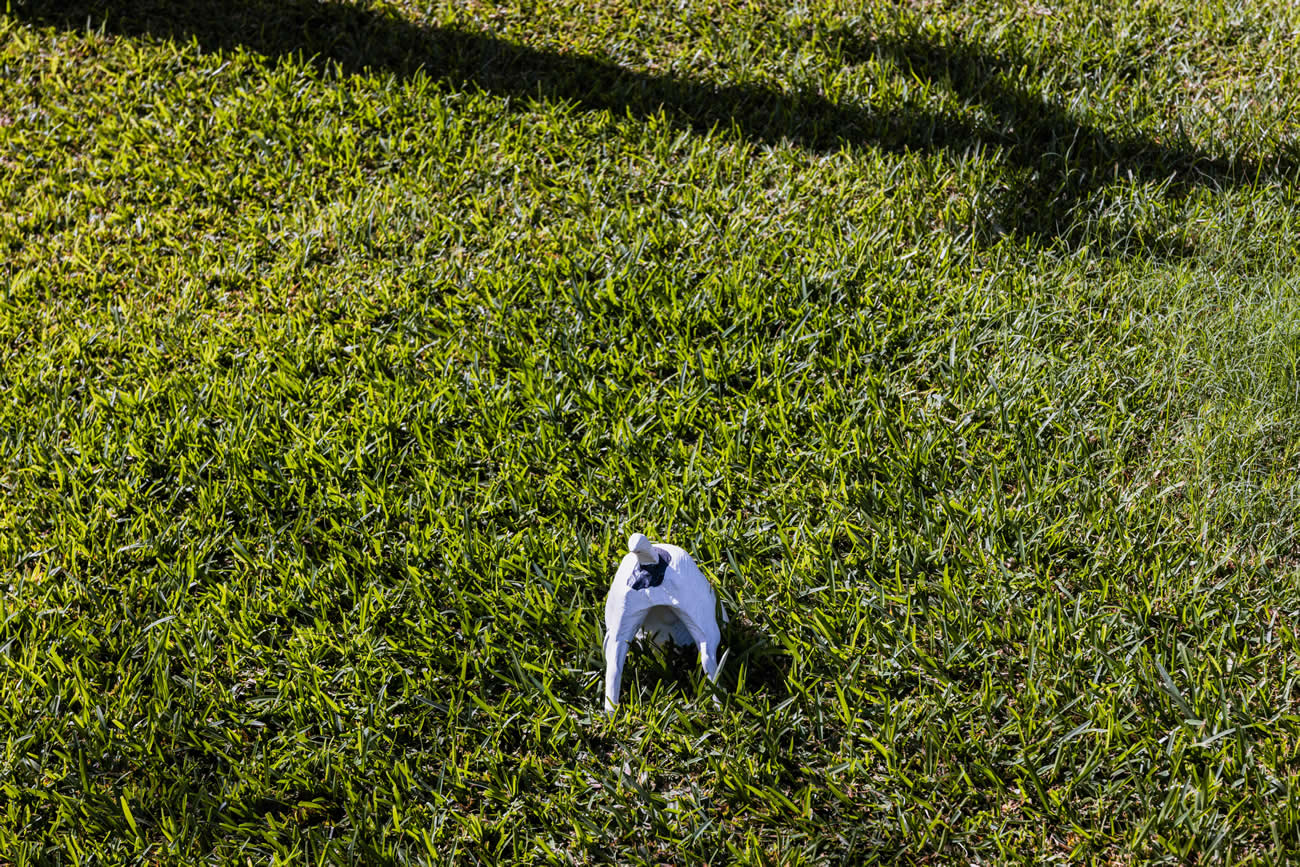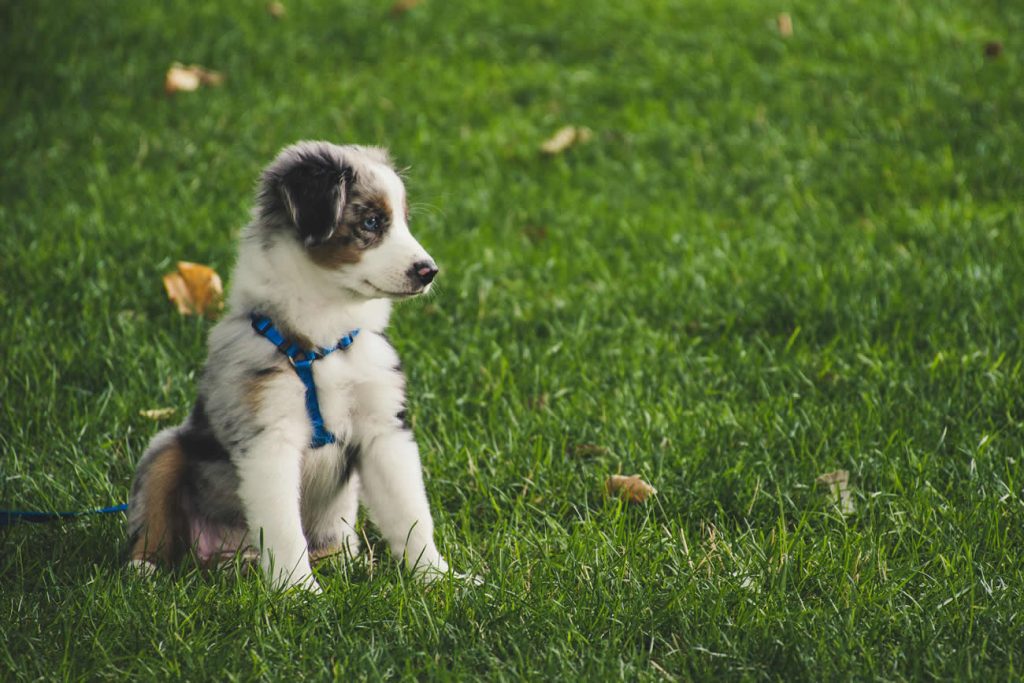There are many reasons why dogs dig. Digging is a natural behavior in dogs and they do it for several reasons. One of the reasons is to release pent up energy. A dog that has been laying around all day can get bored and start digging just because he needs something to do.
Another reason why dogs dig is to mark their territory. If you have two male dogs that are both intact and one of them urinates on the ground, the other will often come over to “mark” his territory by digging a hole at that spot as well. This is often done as a dominance display or just because they want to be near their mate when he urinates on the ground.
Dogs are natural diggers. Digging can also be done as a way for your dog to find cool places in your yard where there might be water or cool dirt underneath the grass. This is especially true if you live in an area where it gets very hot during the summer months. The cool dirt beneath the grass may feel good against your dog’s paws and he may dig until he finds what he’s looking for.
Dogs have a natural instinct to dig, and it’s usually not because they are trying to be destructive. If you notice your dog digging, you can use this behavior to teach them other commands or tricks.
Do Dogs Dig Out Of Boredom?
If your dog is digging in the yard or garden and doesn’t seem to have any other reason for it, chances are that he’s bored. Dogs dig for boredom. That’s right, they dig holes in the backyard to keep themselves busy. To keep your pet busy, give him some toys that will help satisfy his need for entertainment. Dogs need stimulation and exercise in order to stay happy and healthy. If you don’t provide enough for them, they will find ways to entertain themselves. This may mean chewing up the furniture or digging holes in your yard (or both).
It’s a good thing dogs are so cute. They’re also a lot of work. They require attention, exercise and plenty of love.
Dogs Are Natural Hunters
If your dog is digging in one particular spot repeatedly, chances are good that he is looking for something specific or trying to get at something under the ground. For example, your dog might be trying to hunt down burrowing creatures or insects. If, upon closer inspection, you find other critters that could be attracting digging, you will need to seek out ways to eradicate them or otherwise exclude them from your yard.
When dogs dig, they tend to eat dirt. This is not necessarily bad for them unless it happens on a regular basis and causes gastrointestinal issues later on down the road.
Is Your Dog Looking For Comfort?
Dog digging may also indicate that your pet wants comfort or protection from the elements. Your pooch may be too hot and perhaps seeking out water. If your dog is a digger, you must provide him with an appropriate place to dig where he won’t damage the lawn or flower beds.
If your dog’s digging is excessive, it could be a sign that something is wrong with him physically or mentally. Dogs that suffer from pain due to arthritis or other problems often try to relieve their discomfort by digging in soft soil or sand. If your dog seems physically healthy but continues to dig excessively despite efforts to stop him from doing so, consult your veterinarian as soon as possible.
How to Stop Your Dog From Digging
Start with the obvious: make sure that your dog is getting enough exercise. Dogs need exercise to keep them from getting bored and frustrated, and digging is one way for them to release energy. If your dog doesn’t have enough exercise or mental stimulation, he may start digging.
If your dog already gets plenty of exercise and still digs in the yard, try adding more mental stimulation. Our website has articles about how to train dogs, as well as tips on how to get dogs engaged in activities they enjoy, such as playing with toys or listening to music while you’re away from home.
If you’ve ruled out those possibilities and still have a problem with your dog digging holes in the yard, consider giving him his own space where he can dig when he needs it — like a sandbox or dirt pile. You could also provide him with some chew toys that offer an outlet for his chewing instincts and redirect him when he starts rooting around in the ground where you don’t want him digging up bulbs or other plants that won’t survive being dug up and uprooted by an animal trying to find a cool place.
Supervision
Supervision means watching your dog closely enough so that when it starts digging, you can stop it immediately before it does any damage. This may mean that you have to spend more time outside with your dog than normal, but if that’s what it takes to keep your yard safe, then so be it.
Distractions
Sometimes distracting or shifting your pet’s attention will keep them from digging up your yard. Another sound redirection, especially for breeds with an instinct to dig, is a digging area. This could be an area in the backyard with well-worn dirt where they can go and dig without damaging anything else in your yard (or on the lawn). This can keep your dog busy while giving him or her something constructive to do rather than your dog digging up plants or flowerbeds.
Deterrent Spray
There are several deterrent sprays on the market that work by emitting a foul smell that deters dogs from digging in certain areas. You simply spray some of these products onto the ground where you don’t want your dog digging — such as around your garden or flowerbeds — and he should get the message pretty quickly.
Many pet stores carry these products, and they are easy to apply with a spray bottle or hose. Deterrent sprays contain bitter-tasting chemicals that make the soil taste bad so your dog will not want to eat it. The downside is that the taste wears off quickly, so you will have to reapply the product frequently.
If your dog still insists on digging in the same spot after you’ve sprayed it, there may be something buried beneath the surface that acts as an irresistible lure. It could be a dead animal or a tasty item that has been buried by another dog or even by you yourself. Your pet may also just be bored and looking for something interesting to do.
Block Off Access To Stop Dog Digging
The most effective way to stop a dog from digging is to block off access. Physical barriers are the most effective way of doing this, but you’ll also need to use some training techniques to keep him from trying again later on. This can be done by putting a fence or barrier around the area and removing any other items that might be used for digging.
If your dog is successfully digging under fences, you may need to add an extension to the fence or install a barrier such as chicken wire underneath it. If your dog is digging in flower beds, consider planting thorny bushes or shrubs that will deter him from digging there again.
Block off access by using chicken wire or metal flashing. Cut a piece of chicken wire or metal flashing into a square shape large enough to cover the area where your dog likes to dig. Then attach it with wire ties or staples at each corner of your fence post so that two sides are flush with the posts and two sides are flush with the ground. The result should be something like a little box with an open top and closed bottom that covers the area where your dog likes to dig under the fence.
Cover any exposed fencing material with concrete or gravel in an area where your dog likes to dig under a fence. If you don’t want him digging there at all, cover up his favorite spot completely with concrete blocks or gravel so he has no place to dig.
Conclusion
There are a few things you can do to stop a dog from digging.
- Identify the reason your dog is digging. Dogs dig for a variety of reasons, including:
- To find food or buried objects
- To escape from confinement
- To cool down on hot days
- To mark their territory
- To relieve boredom or anxiety
Once you know why your dog is digging, you can start to address the underlying issue. For example, if your dog is digging to find food, you can provide them with more regular meals and snacks. If your dog is digging to escape, you can make sure they have plenty of space to roam and that they are not feeling confined.
- Provide your dog with an alternative outlet for digging. If your dog is digging because they are bored or anxious, you can provide them with an alternative outlet for digging, such as a sandbox or a digging box. You can also try to redirect their digging behavior into other activities, such as playing fetch or tug-of-war.
- Make the areas where you don’t want your dog to dig less appealing. You can do this by covering the areas with rocks, gravel, or chicken wire. You can also plant thorny plants or shrubs in these areas.
- Punish your dog for digging. This is not always the best approach, as it can lead to fear and aggression. However, if your dog is digging in an area where they are not supposed to, you can give them a firm “no” and then redirect their behavior into something else.
- Be patient and consistent. It may take some time to stop your dog from digging. Be patient and consistent with your training, and eventually your dog will learn that digging is not acceptable behavior.
Here are some additional tips for stopping a dog from digging:
- Take your dog for regular walks and play sessions. A tired dog is less likely to dig.
- Provide your dog with plenty of mental stimulation. This can be done with training, puzzle toys, and interactive games.
- Supervise your dog when they are outside. This will help you to catch them in the act of digging and redirect their behavior.
- Do not punish your dog excessively. This can lead to fear and aggression.
- Be patient and consistent. It may take some time to stop your dog from digging.









